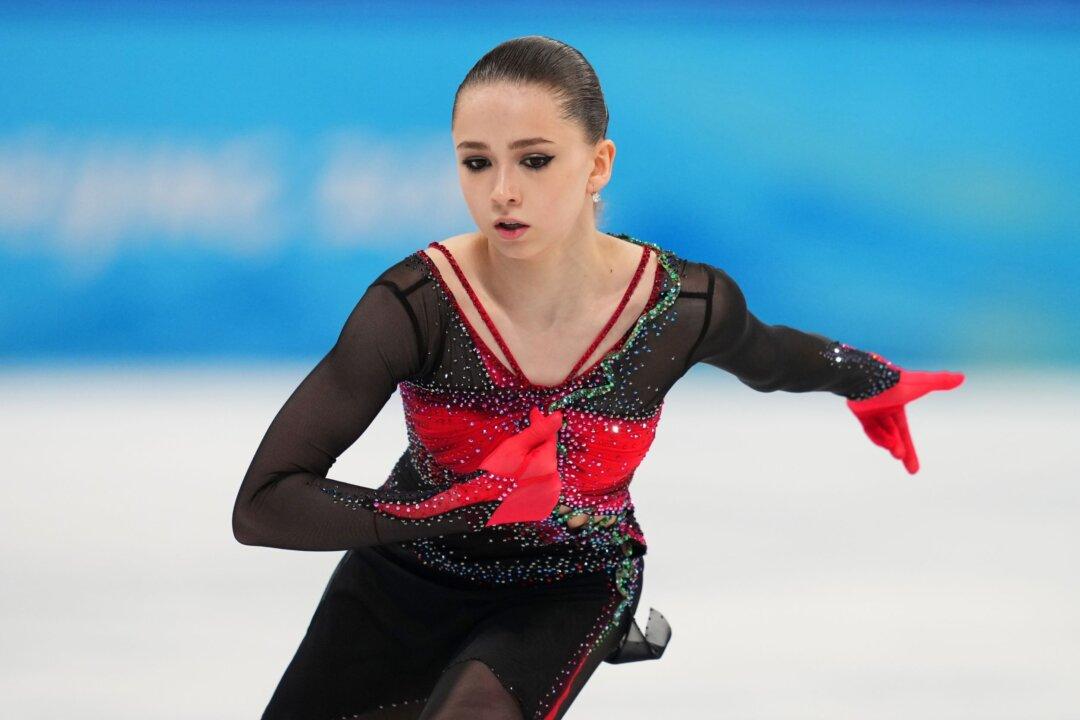MOSCOW—Russia said on Tuesday it would appeal a decision to strip it of an Olympic gold medal after the Kremlin condemned a doping ban against teenage figure skater Kamila Valieva as politically motivated.
The Court of Arbitration for Sport (CAS) on Monday banned Valieva for four years for doping, effective from December 2021, a decision that also stripped the Russian Olympic Committee’s gold medal in the team event at the 2022 Beijing Winter Games nearly two years after the competition.





